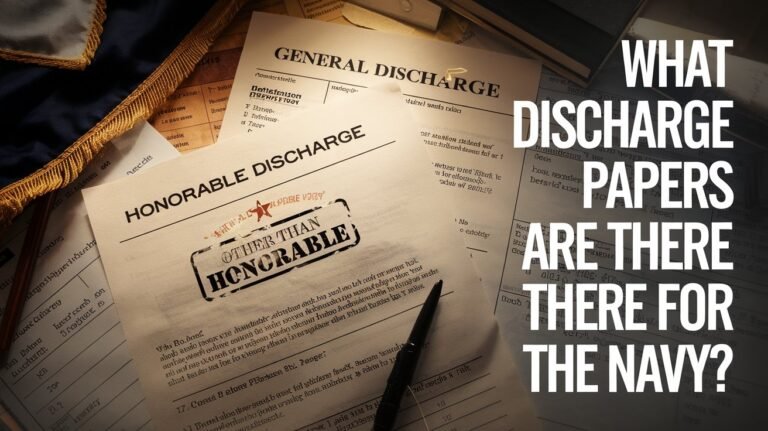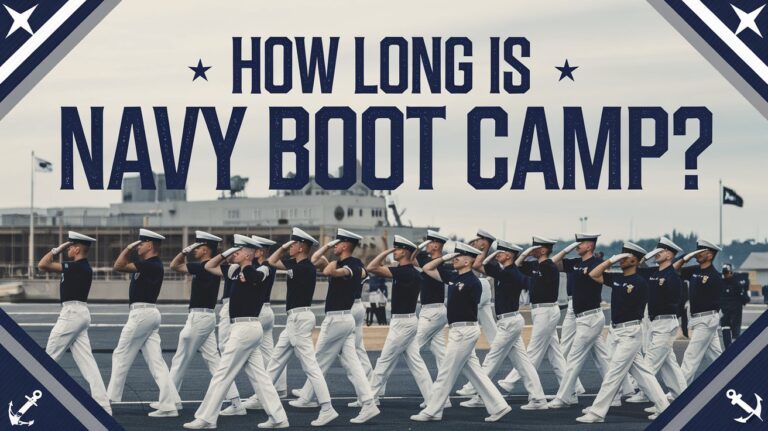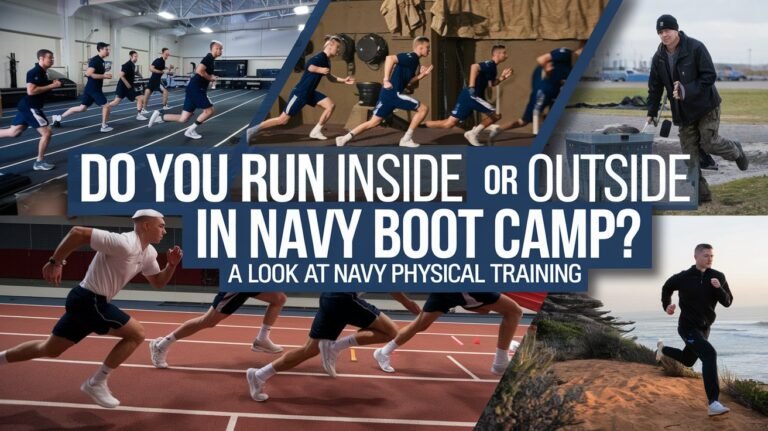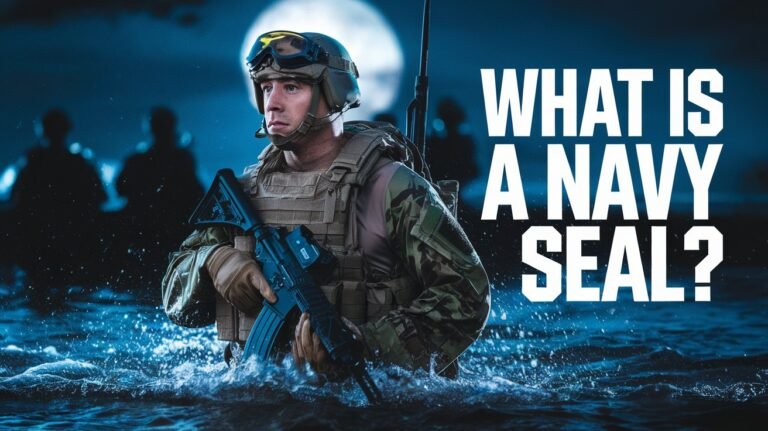What Is The Hardest Week In Navy Boot Camp? Challenges and Training
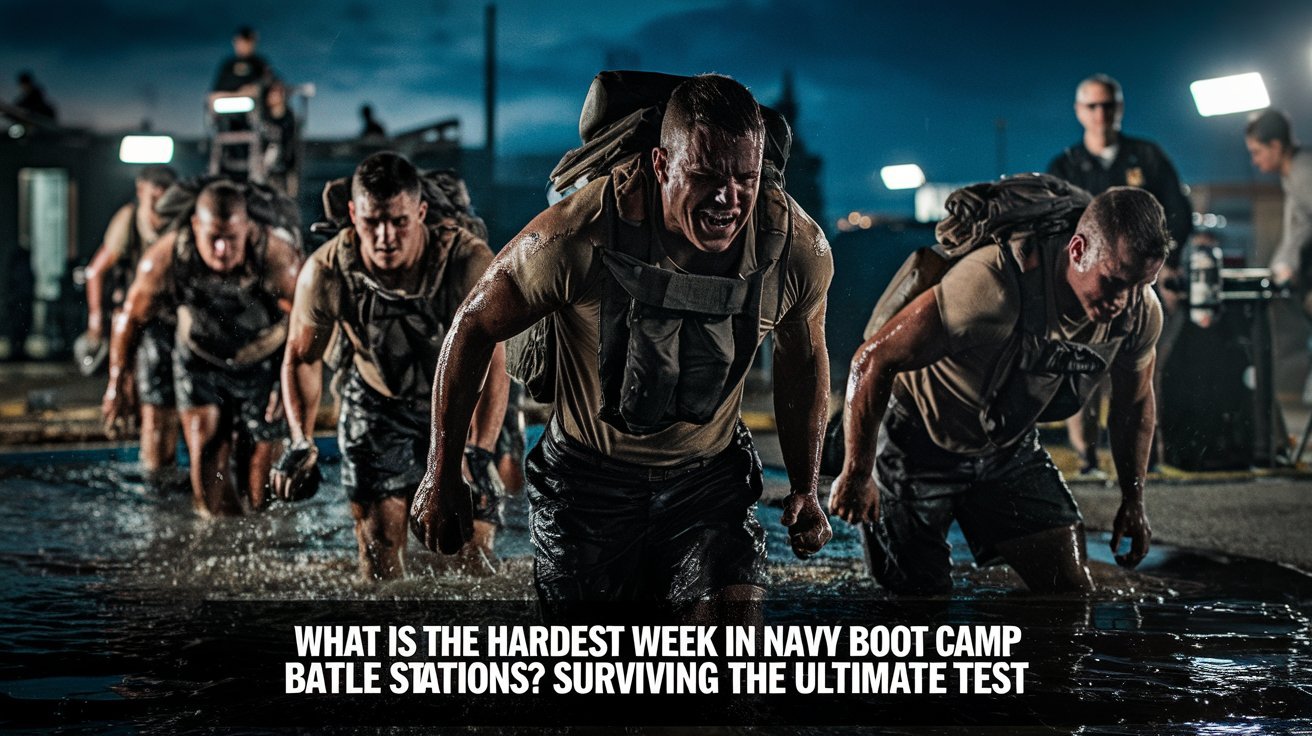
Navy boot camp is known for pushing recruits to their limits. Preparing for boot camp is key to overcoming these challenges. The U.S. Navy boot camp is an eight-week program that tests both physical and mental limits.
Understanding what to expect can help recruits prepare for the challenges they will face. Boot camp preparation is essential for success in the Navy. Knowing the challenges helps recruits stay focused on their goals.
From dental and medical exams in Week 1 to the graduation ceremony in Week 8, Navy boot camp transforms recruits into sailors. The training includes tough physical exercises, team-building activities, and academic tests. These are all important parts of boot camp preparation.
By focusing on Navy boot camp challenges and preparation, recruits can better understand what lies ahead. This helps them prepare for the demands of Navy boot camp.
Physical Demands During Battle Stations
Navy boot camp is tough, pushing recruits to their limits. They face tests of physical fitness, endurance, and sleep deprivation. About 20% drop out, showing how hard it is.
Recruits do 1 hour of PT and 1 hour of running each day. This intense routine, along with a high-calorie diet, leads to a 20-pound weight gain. They face many exercises daily, testing their strength and stamina.
Endurance Requirements
Endurance is key in Navy boot camp. Recruits must handle the training’s physical demands. The final test, “Battle Stations,” lasts for 2 days, simulating disaster scenarios.
Sleep Deprivation Challenges
Sleep deprivation is a big challenge for recruits. They get little rest and must stay alert. This skill is crucial for Navy personnel, who often work long hours under stress.
Combat Fitness Tests
Combat fitness tests check recruits’ readiness. They include push-ups, sit-ups, and a 1.5-mile run. Recruits must pass these tests to graduate and join the Navy.
| Physical Activity | Duration |
|---|---|
| Division Physical Training (PT) | 1 hour daily |
| Running | 1 hour daily |
| Battle Stations | 2 days |
Mental Preparation Techniques for Boot Camp Success
Getting mentally tough is key for success in Navy boot camp. Recruits can boost their chances of doing well by preparing their minds. Techniques like positive self-talk, visualization, and mindfulness help build mental strength.
Some important strategies for mental prep include:
- Practicing mindfulness exercises to reduce overwhelming emotions and improve focus
- Engaging in positive self-talk to build confidence and resilience
- Visualizing success to develop a positive mindset and overcome challenges
By using these mental prep methods, recruits can get the mental toughness needed for the Navy. Remember, mental prep is just as important as physical training. It helps with staying focused and doing well in boot camp.
Week Six Training Intensity
Recruits in Navy boot camp face tougher challenges as they move forward. Week six is a key time with high training intensity. It’s when they get evaluated and assessed to see if they’re ready for more advanced training.
This week is filled with tough physical and mental tests. Recruits need to show they can handle weapons and manage their time well. They have to keep up with many tasks while staying fit.
Challenges of Week Six
Recruits face several big challenges in week six:
- Advanced combat training that tests their limits and skills in complex situations
- Intensive physical conditioning to boost endurance, strength, and power
- Simulated disaster scenarios to see how they handle emergencies
By week six’s end, recruits have changed a lot. They’ve become stronger and more ready for the Navy’s challenges. They’re set to face what’s next.
| Training Component | Description |
|---|---|
| Weapons Qualification | Recruits show they can use different firearms well |
| Advanced Combat Training | Recruits use their skills in complex situations |
| Time Management | Recruits handle many tasks and responsibilities |
What Is The Hardest Week In Navy Boot Camp
Navy boot camp is tough, but the hardest week varies for everyone. Sources say the hardest week includes physical training, drill, and learning strict Navy rules.
Challenges during the hardest week include:
- Physical training that tests recruits’ limits
- Drill and ceremony needing precision
- Adjusting to the Navy’s strict rules
Recruits ready for the hardest week will face training better. Knowing what’s ahead helps them build the strength needed to succeed in the Navy.
Recruits usually wake up at 0400 and finish at 2000 during the initial processing. This can be tough for those not used to strict schedules.
The hardest week in Navy boot camp is tough for recruits. But, with the right mindset and preparation, they can overcome challenges and reach their goals.
Battle Stations Simulation Breakdown
The battle stations simulation is a key part of Navy boot camp. It teaches recruits to work together and handle emergencies. This training helps them prepare for the Navy’s challenges, like emergency responses and leading teams.
Recruits face different emergency scenarios, like fires and medical emergencies. They must solve these problems together, using their skills in communication and problem-solving. They also get to show their leadership by leading their team in these scenarios.
Emergency Response Scenarios
Emergency scenarios are a big part of the battle stations simulation. Recruits learn to act fast and solve problems in these situations. Examples include:
- Fires on board ship
- Medical emergencies, such as injuries or illnesses
- Floods or water damage
- Search and rescue operations
Team Leadership Challenges
Team leadership is also a focus in the simulation. Recruits get to show their leadership skills by leading their team. They make decisions, give orders, and work together to reach their goals.
| Challenge | Description |
|---|---|
| Leadership Scenario 1 | Recruits are given a scenario where they must lead their team in responding to an emergency situation. |
| Leadership Scenario 2 | Recruits are given a scenario where they must make a difficult decision and lead their team in implementing it. |
The battle stations simulation is crucial for Navy boot camp. It teaches recruits to work together and handle emergencies. This training helps them develop the skills needed to succeed in the Navy.
Medical Readiness Requirements
Medical readiness is key in Navy boot camp. Recruits must meet strict physical fitness standards. They need to be in great shape to handle the training.
Recruits learn the importance of staying healthy. This helps them understand the need to take care of their bodies.
Some important medical readiness requirements include:
- Passing a physical fitness assessment, which includes timed planks, pushups, and a 1.5-mile run
- Meeting Navy physical fitness standards and approved body composition measurements for height and weight
- Completing a water survival course to build essential water safety skills
- Undergoing initial medical and dental screenings upon arrival at Recruit Training Command
Physical fitness is a big part of training. There are many assessments that test different skills and endurance. Recruits must be able to swim 50 yards, float for 5 minutes, and inflate their life jackets.
By focusing on medical readiness and physical fitness, recruits can do well in Navy boot camp.
| Week | Medical Readiness Requirement |
|---|---|
| 1 | Water survival course |
| 2 | Initial dental examination |
| 4 | Recruit Division Commander (RDC) Assessment |
| 8 | Official Physical Fitness Assessment (PFA) |
Psychological Challenges of Week Seven
Recruits face many psychological challenges in Navy boot camp. Week seven is a key time for evaluation. They must manage stress and stay resilient.
Teamwork is vital in week seven. Recruits need to work together to reach goals. Building camaraderie helps them succeed in the Navy.
Personal resilience is crucial. Recruits learn to handle stress and build mental toughness. This is key for success in the Navy.
Here are some ways to manage stress:
- Deep breathing exercises
- Physical activity
- Mindfulness meditation
By using these methods, recruits can overcome week seven’s challenges. They will be ready for the Navy.
Academic Testing Milestones
Academic testing is key in Navy boot camp. Recruits must meet strict standards. They need to know naval procedures, protocols, and rules well.
This shows the importance of academic testing. It helps recruits prepare well for the Navy. They learn the knowledge and skills needed to succeed.
Some important milestones in academic testing include:
- Completing coursework in naval history, core values, and leadership principles
- Passing exams on naval procedures and protocols
- Demonstrating proficiency in skills such as first aid, firefighting, and damage control
Recruits who reach these milestones are on the right path. Academic testing is a big part of boot camp. Those who take it seriously will be ready for the Navy’s challenges.
By focusing on academic testing, recruits can succeed in the Navy. They will meet their goals and do well in their careers.
| Milestone | Description |
|---|---|
| Coursework completion | Recruits complete coursework in naval history, core values, and leadership principles |
| Exam passage | Recruits pass exams on naval procedures and protocols |
| Skills proficiency | Recruits demonstrate proficiency in skills such as first aid, firefighting, and damage control |
By reaching these academic testing milestones, recruits show their dedication. They are ready for success in their naval careers.
Military Bearing Standards
Military bearing is key in Navy boot camp. Recruits must meet certain standards. This includes how they look, stay clean, and act.
Recruits need to look sharp and stay clean. They are checked during uniform inspections. These checks see if they wear their uniforms right and follow Navy rules.
They also need to do well in drill and ceremony. This is tested during drill performance assessments.
Key Components of Military Bearing
- Personal appearance and hygiene
- Uniform inspections
- Drill performance requirements
Mastering these areas shows a recruit’s dedication to military bearing. This is crucial for success in Navy boot camp. Recruits who focus on military bearing do better in their training and future careers.
Conclusion: Your Path Through Navy Boot Camp
Starting your journey through Navy boot camp is a big step. It’s a chance to grow and become a strong sailor. You’ll learn to be physically fit, mentally tough, and knowledgeable.
Navy boot camp is a challenge that will test you. But, the rewards are huge. You’ll gain skills and a mindset to excel in the Navy.
Stay focused and resilient as you go through boot camp. It’s tough, but the feeling of accomplishment is amazing. This is your chance to become the best version of yourself. Let boot camp be the start of a rewarding Navy career.

